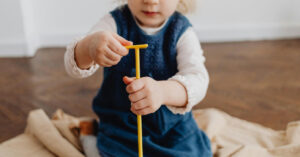
15 Best Toys for Building Independence — That Aren’t Boring or Overhyped
From magnetic tiles to dolls and pretend kitchens, these 15 toddler toys are actually worth the shelf space — and designed to encourage solo play and confidence.
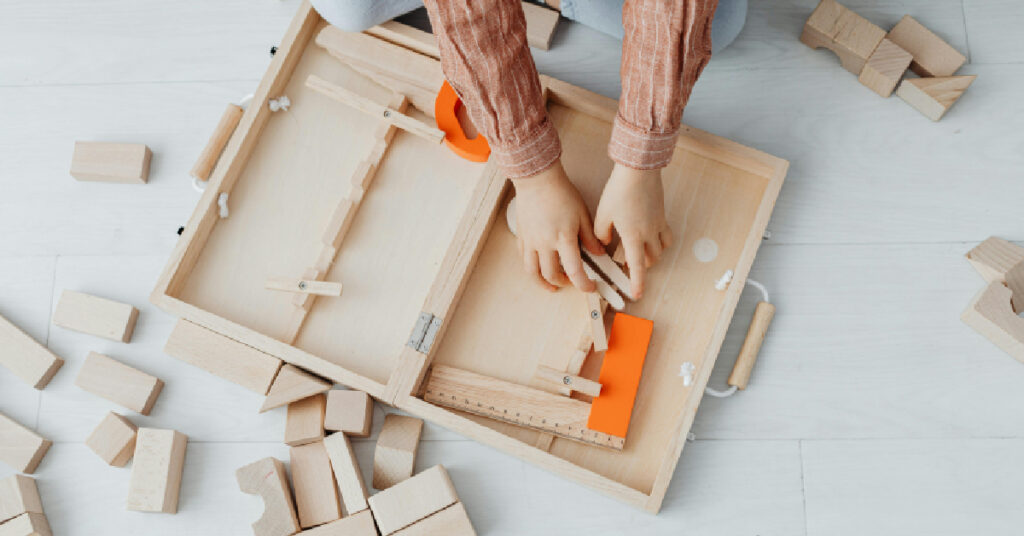
If you’ve ever found your toddler ignoring their flashy new toy and playing with a spoon, a sock, and a snack lid instead — congratulations. You’ve just met the magic of loose parts toys for toddlers.
These aren’t your average toys. They don’t light up. They don’t talk back. And they don’t tell your toddler how to play. Instead, loose parts toys give your child total freedom to create, explore, and imagine — on their own terms.
Whether you’re Montessori-curious, building a yes space, or just trying to survive the witching hour without a screen, loose parts toys for toddlers are the unsung heroes of independent play. They’re budget-friendly, grow with your child, and require almost zero setup.
In this guide, we’ll break down what makes these toys so powerful, how to use them in everyday play, and share the best loose parts kits (real-mum tested, chaos-approved) that actually deliver on their promise.
Because a little basket of blocks, bowls, and wooden rings might just give you the most peaceful 10 minutes of your day.
So what exactly are loose parts toys for toddlers? Think of them as the anti-toy. No flashing lights, no instructions, no single “right” way to play — just open-ended items your toddler can move, stack, sort, scoop, and reinvent every single day.
The term loose parts comes from early childhood education and Montessori-inspired play. It simply means small, safe objects that toddlers can use in creative and unexpected ways.
Loose parts toys for toddlers might include:
Wooden rings and coins
Felt balls or pom-poms
Silk scarves or fabric squares
Mini bowls, cups, spoons
Pinecones, lids, blocks, scoops
The magic? These toys don’t do anything — so your toddler’s brain does everything. That means longer focus, less overstimulation, and deeper developmental benefits.
Encourage independent play: Your toddler leads the play, without needing prompts or adult direction.
Support brain development: Loose parts build problem-solving, sequencing, and planning skills.
Develop fine motor skills: Scooping, pinching, stacking, and sorting — all the good stuff, disguised as fun.
Foster creativity + imagination: A bowl becomes a nest. A ring becomes a cookie. A fabric square becomes a river.
Regulate emotions: Simple, repetitive actions like sorting or pouring can calm and ground an overwhelmed toddler.
And best of all? These toys grow with your child. What starts as sensory exploration at 18 months becomes storytelling, math, and pretend play by age 4.
So, you’ve got a basket of felt balls, rings, spoons, and bowls. Now what?
The beauty of loose parts toys for toddlers is that they don’t require a setup worthy of Pinterest — just a little intention and a whole lot of freedom.
Here’s how to use them to encourage solo play and creativity (without you having to sit beside them narrating every moment).
Loose parts thrive in small groupings. Offer a handful of items in a shallow tray or basket and let your toddler explore. Think:
Wooden rings + bowls
Pom-poms + tongs
Fabric squares + scoops
Rotate combos every few days to keep it fresh without overwhelming them.
Set your toddler up for success by placing loose parts toys for toddlers inside a yes space or defined play area. This allows them to experiment without constant redirection (or safety stress).
Read More: Yes Space for Toddlers: 10 Tips for Creating Safe, Independent Play Zones
You don’t need an hour of elaborate play. Try using loose parts:
During post-nap quiet time
In the kitchen while you cook
At the table while older siblings do homework
Outside in a sensory bin or tub
Even 10 minutes of focused exploration builds concentration and solo play stamina.
There’s no wrong way to play with loose parts toys for toddlers. If your child mixes pom-poms and animal figurines to make “jungle muffins,” roll with it.
Open-ended play builds confidence because they’re in charge of the story.
Looking for loose parts toys for toddlers that actually get played with? Skip the clutter and discover the real MVPs — open-ended, screen-free, and toddler-tested.
Each of these toys supports solo play, creativity, and independence. They work beautifully in yes spaces, Montessori-style shelves, or your average living room chaos zone.
Here’s what we’re loving:
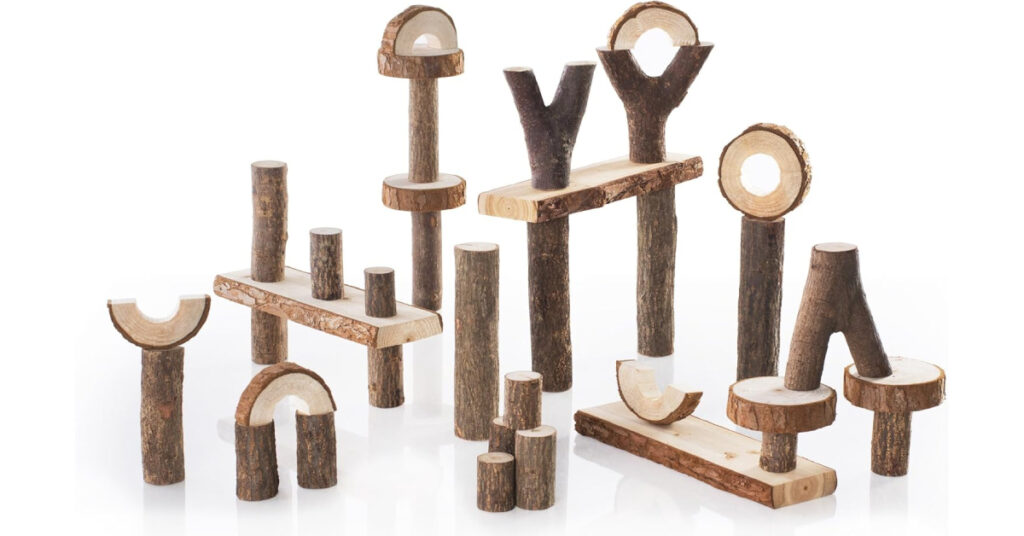
These stunning wooden pieces are textured, varied, and perfect for nature-inspired play.
Why it works:
They’re perfect for stacking, balancing, small world play, or combining with peg dolls and animals.
Mum hint: Add in some playdough — your toddler will sculpt forests in minutes.
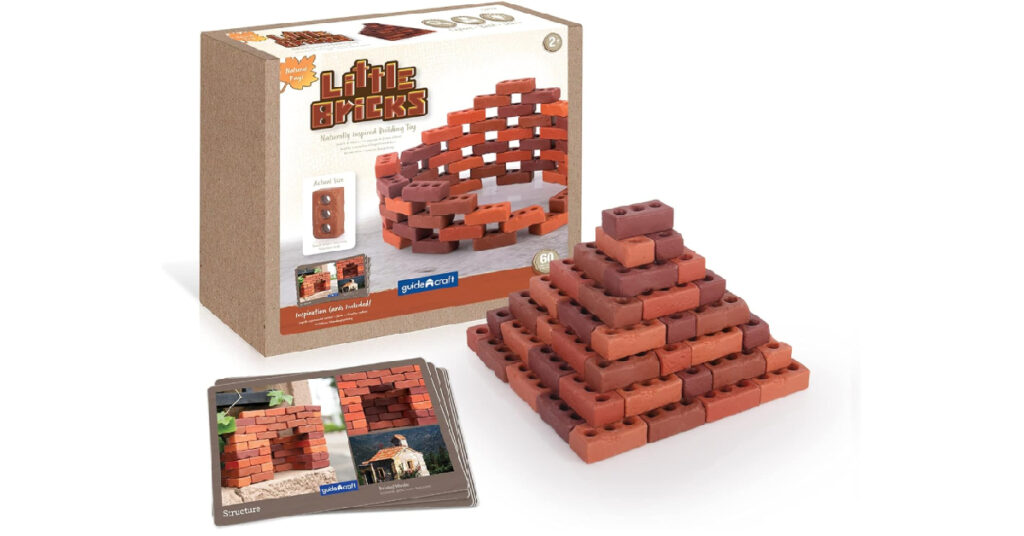
Mini brick-sized blocks with endless building potential.
Why it works:
Loose parts toys for toddlers should grow with them — these are great from 2+ up to early school age.
Mum hint: Pair with kinetic sand or clay for messy, sensory construction fun.
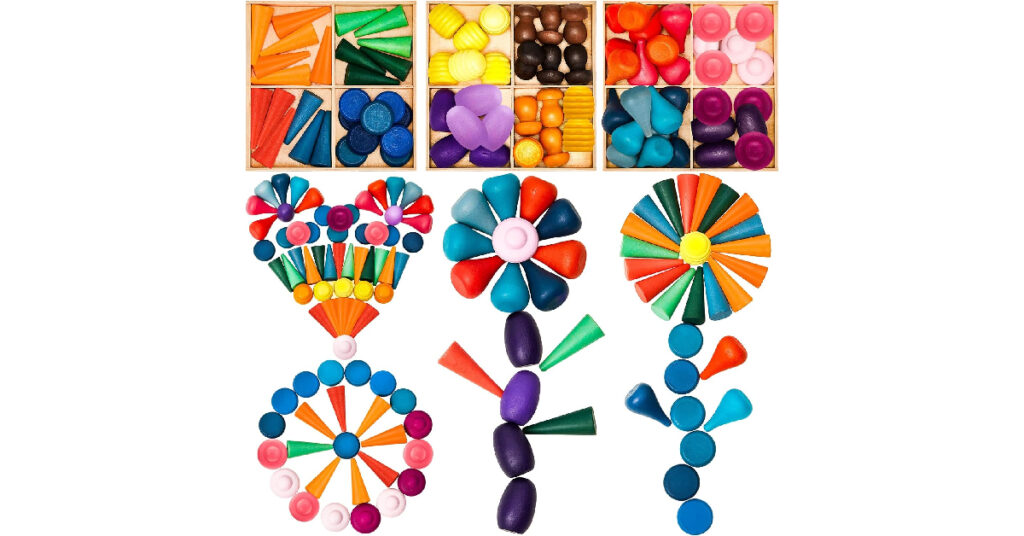
Affordable and beautiful — a rainbow mandala set ideal for sorting, counting, or storytelling.
Why it works:
They’re open-ended, stackable, and perfect for sensory trays or colour matching.
Mum hint: Use with matching bowls or muffin trays for easy activity setups.
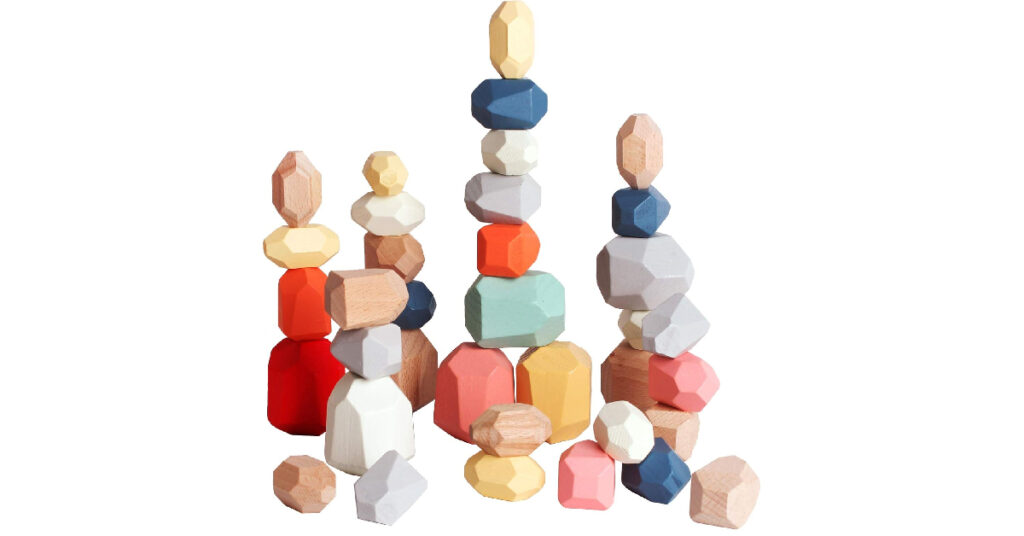
Colorful and lightweight, these are a great introduction to balance and form.
Why it works:
They help toddlers develop focus, hand-eye coordination, and planning.
Mum hint: Take a photo of their tower, then challenge them to rebuild it.
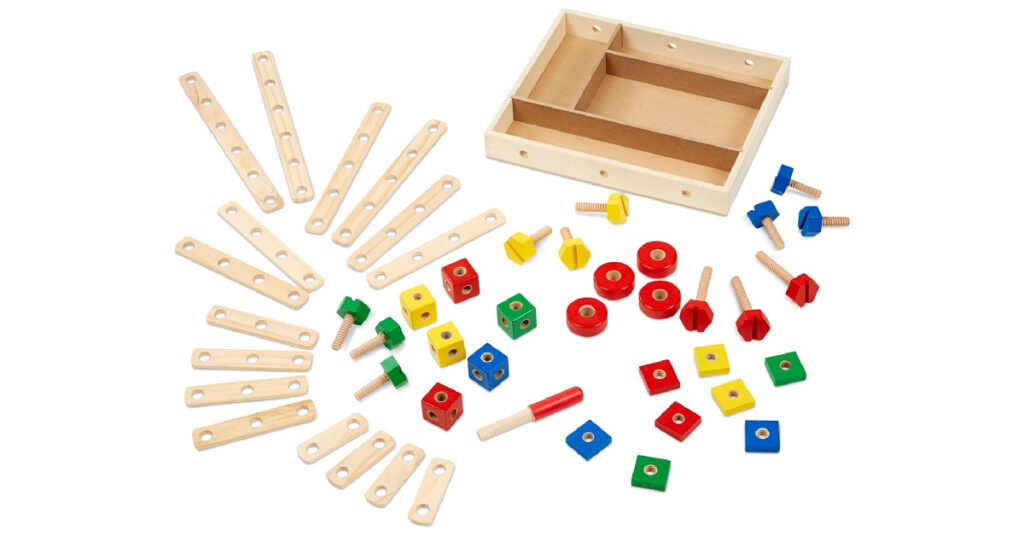
A classic staple for a reason — solid shapes, big builds, and open-ended fun.
Why it works:
They’re durable, versatile, and easy to integrate into other play setups.
Mum hint: Combine with cars, animals, or dolls for full-scale scenes.
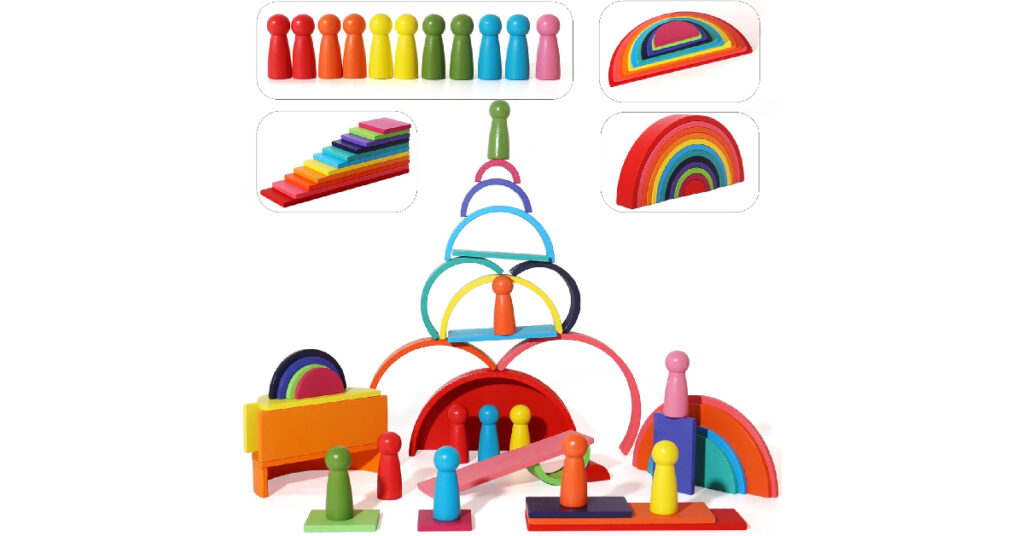
A rainbow of wooden pieces that’s perfect for tinker trays or sorting shelves.
Why it works:
This is the “all-in-one” set for introducing loose parts toys to toddlers.
Mum hint: Rotate a few pieces each week — it keeps things fresh without buying new.
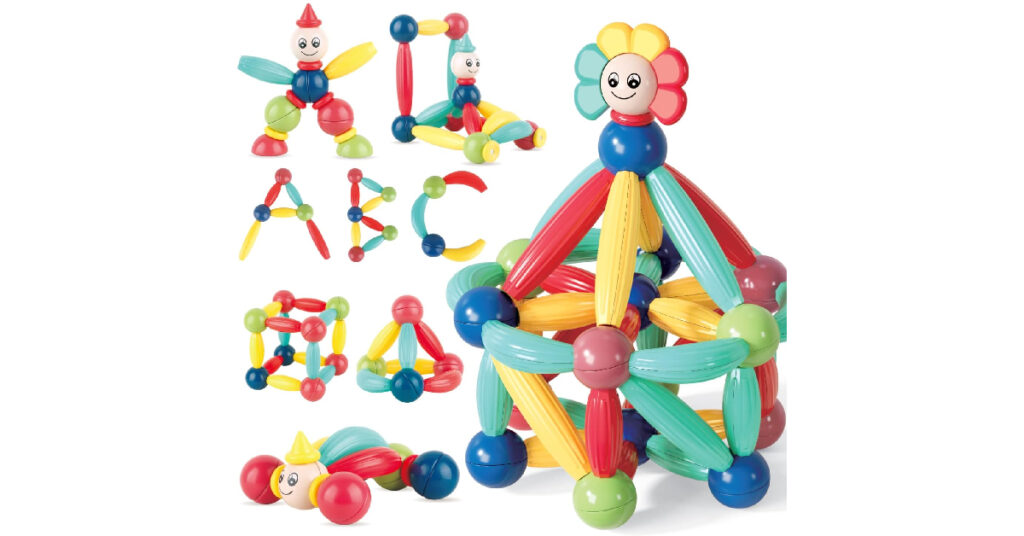
This one’s a win for younger toddlers learning colours, coordination, and sorting.
Why it works:
Loose parts toys that include colour-coded elements encourage independence in a structured way.
Mum hint: Set it up as a morning starter activity — it’s engaging without overstimulating.
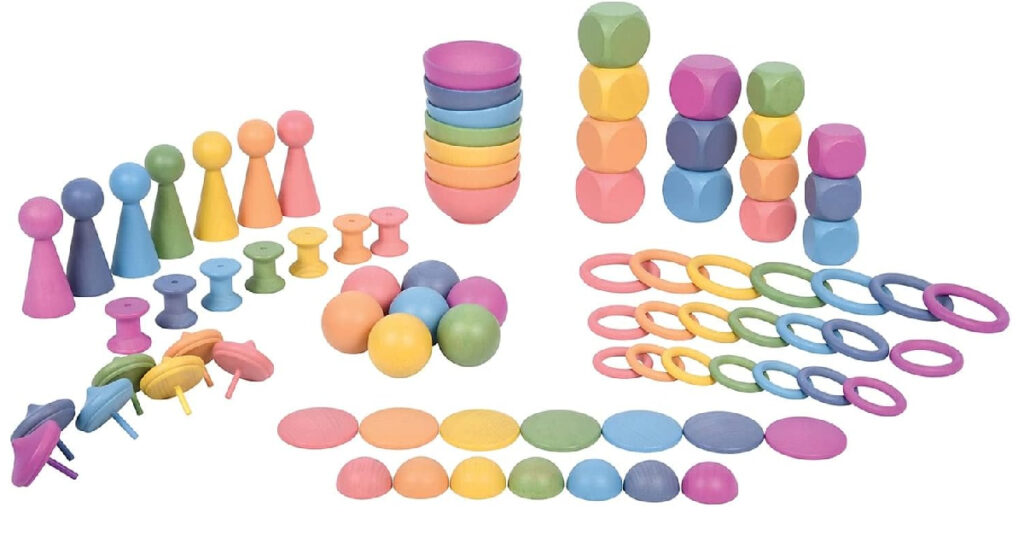
A big, bright, beautiful kit that works across all kinds of open-ended play.
Why it works:
This is the dream for yes spaces, Montessori shelves, and group play setups.
Mum hint: Set out a themed tray (e.g. “blue day”) with matching loose parts and see where they take it.
Good news: you don’t need a big spendy kit to get started with loose parts toys for toddlers. In fact, some of the best playthings might already be hiding in your kitchen drawers or junk drawer.
The goal? Offer a mix of textures, sizes, and purposes — so your toddler can sort, scoop, roll, stack, or invent however they like.
Lids (from jars, baby food, milk bottles)
Muffin tins, ice cube trays, silicone cupcake liners
Wooden spoons or scoops
Fabric scraps or old scarves
Empty spice jars or containers
Rocks, pinecones, shells (for older toddlers)
💡 Tip: Store these in a small basket and rotate items weekly to spark new interest.
Always double check that DIY parts are:
Too big to swallow
Not sharp, glass, or breakable
Clean and non-toxic
Supervised at first (especially with babies/toddlers under 3)
You can also keep small parts in a “mum only” rotation kit to bring out when you’re close by.
While DIY is amazing, curated loose parts toys for toddlers save time and give you a balanced mix of materials you may not easily find. If you’re short on time or just want a beautiful shelf setup, a kit might be the simple sanity-saving move.
Loose Parts Play Ideas: 25+ Simple Tray Setups That Spark Creativity
If there’s one thing to remember about loose parts toys for toddlers, it’s this — the less the toy does, the more your toddler’s brain lights up.
Loose parts are simple. Quiet. Affordable. And yet they’re some of the most powerful tools you can give your child for solo play, imagination, and learning. Whether you’re buying a beautiful wooden kit or building your own stash of spoons and rings, you’re creating opportunities for creativity, focus, and confidence — every single time your toddler plays.
And the best part? These toys grow with them. What starts as scooping and dumping at 18 months becomes pretend bakeries, fairy towns, and math skills at age five. That’s the beauty of open-ended play — it expands with your child, not against them.
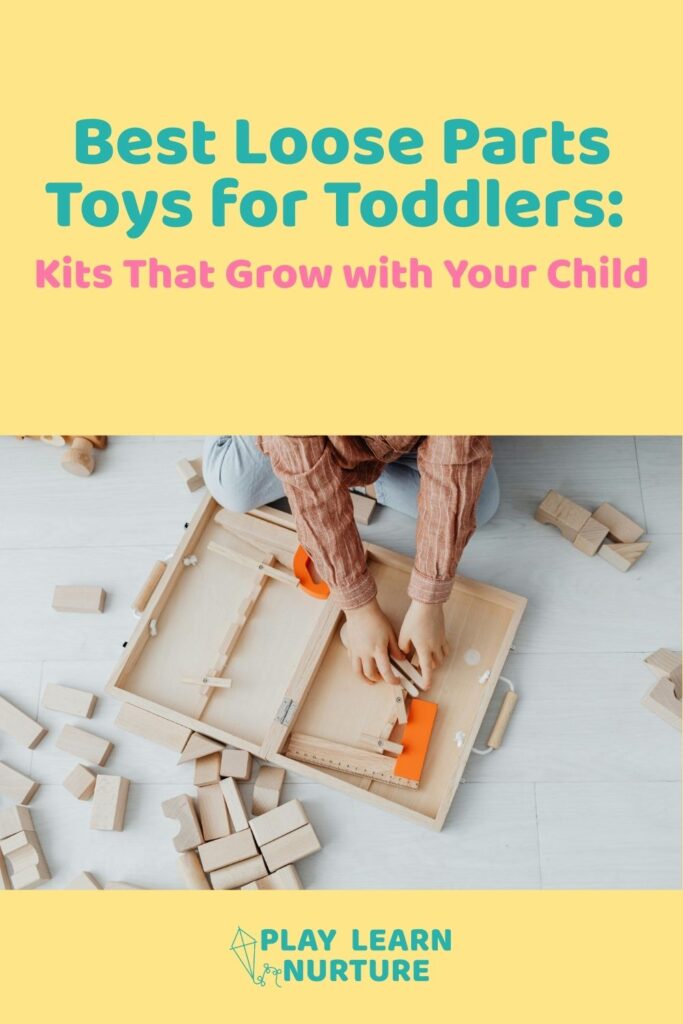

From magnetic tiles to dolls and pretend kitchens, these 15 toddler toys are actually worth the shelf space — and designed to encourage solo play and confidence.
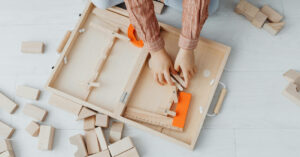
Delve into the world of loose parts play with our selection of toys that inspire exploration and innovation. Perfect for enhancing your toddler’s sensory and cognitive skills.
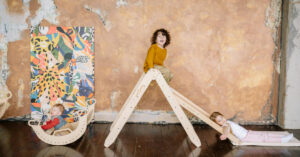
Simple, real-life play space ideas for toddlers that spark imagination, support independence, and give you a moment to breathe — no Pinterest-perfect setup required.
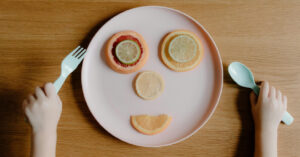
When the milk spills, the toddler tantrums, and your patience snaps before 9AM — you’re not failing. This is one mum’s story of surviving the messy mornings and finding connection in the chaos.
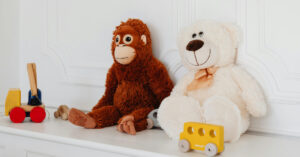
Discover how a simple toddler play schedule can create calmer days, boost independent play, and give you back precious breathing space — no strict routines required.

One chaotic morning, I realised the tension in the house wasn’t just coming from my toddler — it was coming from me. This is the story of how I stopped fuelling the chaos and started checking my own emotional thermostat first.